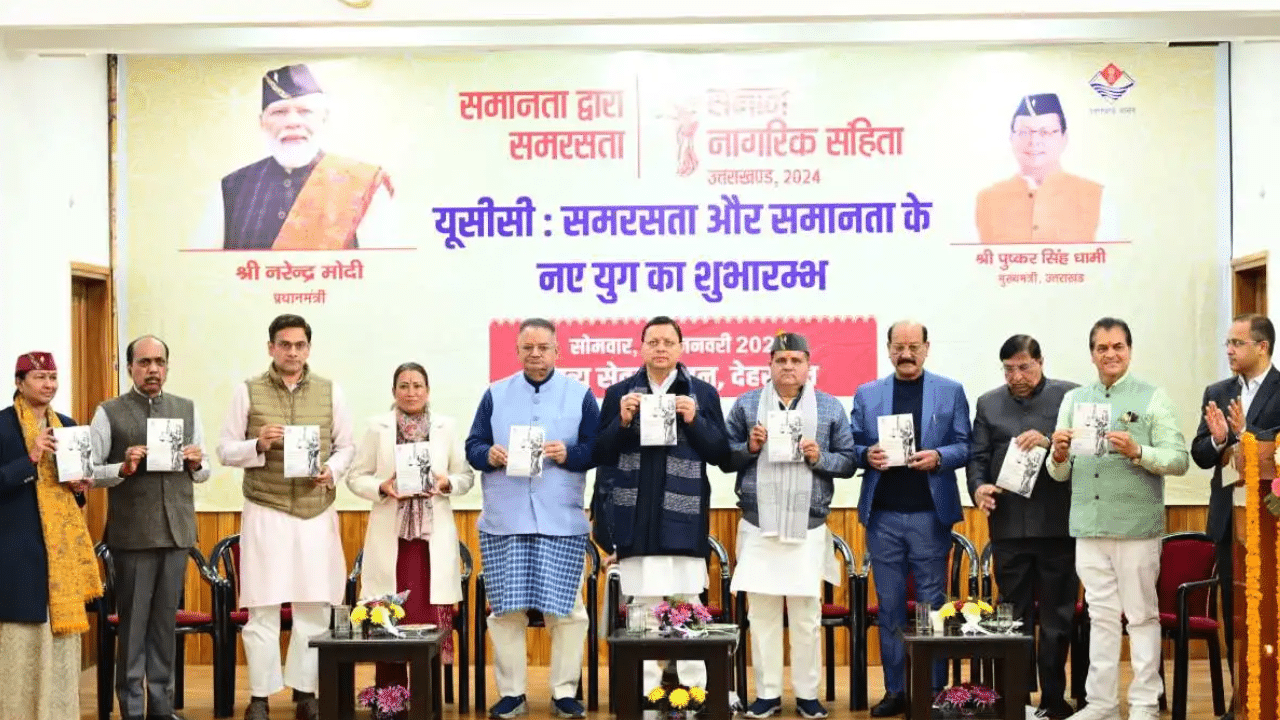On January 27, 2025, Uttarakhand made a historic stride by becoming the first state in India to officially implement the Uniform Civil Code (UCC). This landmark move, announced by Chief Minister Pushkar Singh Dhami, seeks to standardize personal laws concerning marriage, divorce, inheritance, and succession, ensuring equality across gender, caste, and religion.
The UCC aims to eliminate discriminatory practices in personal laws and promote fairness by unifying legal frameworks for all citizens, excluding scheduled tribes. The state’s bold move follows a commitment made by the ruling party during the 2022 assembly elections, where the promise of introducing the UCC gained significant support from voters.
By harmonizing civil laws, the UCC is designed to offer equal legal treatment to everyone, regardless of their gender or religious background. For example, it includes provisions for mandatory marriage and live-in relationship registrations. These registrations will not only protect individual rights but also offer legal recognition, especially in cases of marital disputes and inheritance. This shift is expected to bring much-needed protection and clarity in areas often complicated by personal laws based on religion or community.
The implementation of the UCC is in line with Prime Minister Narendra Modi’s vision of a more inclusive, organized, and self-reliant India. Chief Minister Dhami emphasized that the new law would foster unity and equality, setting a precedent for other states to follow. While the UCC has sparked national debates about its potential impact on India’s diverse cultural and religious fabric, Uttarakhand’s decision is being hailed as a progressive step toward social justice and legal equality.
This transformative decision reflects the state’s determination to create a more cohesive society, where all citizens, irrespective of background, can expect equal treatment under the law. However, the exception made for scheduled tribes shows the government’s recognition of certain cultural and traditional practices that exist within these communities.
In the coming months, the state will focus on ensuring that all relevant systems are in place, including official training and preparation for a smooth transition to the new legal framework. Chief Minister Dhami has confirmed that the implementation process will be carried out meticulously to avoid any disruption. This comprehensive approach includes the introduction of necessary rules and regulations, which were approved by the state cabinet ahead of the law’s enforcement.
The introduction of the UCC in Uttarakhand marks a significant chapter in India’s ongoing discourse about law reform, equality, and societal progress. While critics argue about potential challenges to the country’s rich diversity, supporters of the UCC believe that it is an essential step toward building a fairer society where the law applies equally to all citizens.
As Uttarakhand sets this remarkable precedent, it is anticipated that other states might follow suit, adapting the Uniform Civil Code to their respective regional and cultural needs. The success of Uttarakhand’s UCC implementation will likely serve as a model for the rest of the country, igniting further debates and conversations about the future of civil law in India.


